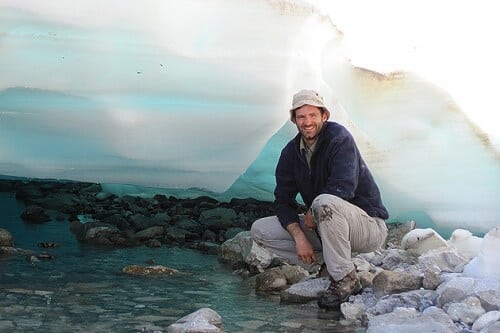Due to the increase in temperature, animals and plants move to high areas where the temperature is low, but not all species are able to migrate or spread seeds quickly and reach suitable living areas before they die

Projections of the future loss of animal and plant species due to global warming are a constant and ongoing concern for biologists, zoologists, botanists and many other researchers.
New research states that "since the computer models of the effect of the climate on the species did not take into account the competition between the species and the different types following the migration of the species, the assessment of the damage and extinction of species is lacking", meaning that the competition between species that migrate to new geographical areas will cause the disappearance of more species than predicted so far .
The study published in the Proceedings of the Royal Society B: Biological Sciences and headed by the ecologist Mark Urban (Mark Urban) from the University of Connecticut states that the sophisticated climatic models do indeed predict the effect of climate change on the natural environment but "in life" animals move and migrate, compete, care (parasites ) and carry parasites, most predictions do not take into account the interactions between the species.
Many studies and experiments have shown that species migration is already taking place as a response to climate change. Due to the increase in temperature, animals and plants move to high areas where the temperature is low, but not all species are able to migrate or disperse seeds quickly and reach suitable living areas before they die, species that reach suitable habitats may lose in competition with species that are already in the habitats or those that arrived before them, or alternately Local species may "give in" and lose to new species in the field, give in and disappear.
Urban created a mathematical model that takes into account variables such as migration rate and the changing intensity of competition between species that exist in environmental (ecological) communities in order to predict what the level of success of species in those communities will be, what the level of success will be when they move to a completely new habitat. The results showed that animals and plants that adapt to climate change ("opportunists") will have an advantage over those who do not adapt (obviously, understandable and predictable!)
The chances of animals that occupy small geographical areas, need unique habitats (conditions) and breed slowly are low, these animals will lose in the competition and due to climate change will become extinct. The model shows that these animals will be "flooded" by species that adapt to a wide variety of habitats (conditions), since the competition is not in speed of movement (migration) but in speed relative to competitors, speed of migration and speed of adaptation as one.
Urban compares the occurrence to a train moving up a mountain where each car represents a species, when moving at a uniform speed they will all reach the top of the mountain, but in reality each car (each species) moves at a different speed, a situation that creates a competition collision. There is always a trailer in front and a trailer behind, when the traffic is at a different speed, collisions and even run-overs occur and this is a recipe for disaster).
The importance of the study is due to the "conservatism" of accepted predictions for the loss of biological diversity due to climate change, predictions that many of them form a data base according to which organizations and governments operate, conservative predictions that estimate the extinction of species far below what was expected.
For example, in communities in equatorial regions, the density of species is high in relatively small areas, the equatorial regions are the most affected by warming and therefore in them the competition to "conquer" new habitats will be extremely difficult and the result will be many species that will lose and become extinct.
According to the researcher, integrating data on climate change into the mathematical model he built is an essential key to understanding the chances of species continuing to exist and determining the level of risk for species, an understanding and determination that will dictate conservation and protection actions.

3 תגובות
to hartk
You make a very important point. This model talks about processes that take decades and hundreds of years, most of which we do not see or follow in a substantial way. This is actually one of the main reasons for using models in ecology and evolution - the long period of time that the processes take.
And in particular to your question - there are interesting studies that talk about expanding the areas of distribution of animals and plants after the retreat of the glaciers.
Very interesting, but it's a shame there isn't an example.
I would appreciate it if someone would respond with some example, about animals or something else from the research that proves the claim.
Maybe it was all for nothing,
Particle accelerator, the conquest of space, medicine, music, computing, Nobel prizes, the Temple Mount, prayers, wars, beliefs, nations, races, genius, futurism.
You want to say that all these years, we played like little children, all we built were castles of sea sand,
They will be deleted as soon as the wave arrives.
It also doesn't make sense that we, the strongest and most intelligent beings on the planet, suddenly disappear,
When the inferiors are mindless like insects and single-celled creatures, some will survive after us
I prefer the belief that the human race will exist forever, this is the best, the most beautiful, the most true.
I recommend establishing a special forum that will work to introduce that belief into our minds, with the help of genetic engineering.
We will finally take advantage of the tremendous advancement and development of the human race..
We will no longer feel that we have built palaces of sea sand.